Mozambique: 29 confirmed mpox cases, including the first in Maputo province
Covid-19 in Maputo: The places and the social distancing – in pictures
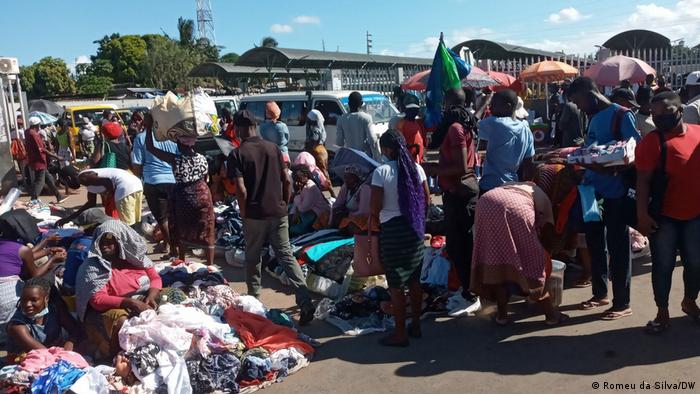
Photo: DW
With the increase in positive Covid-19 cases in Maputo, criticism is growing of the number of places where measures to contain the pandemic, such as social distancing and hygiene rules, are not being complied with.
Markets, major foci
The spread of the new coronavirus in the city of Maputo is increasing. In the Mozambican capital, places where there is minimal social distancing are identified as the main sources of spread of the virus. Markets are one such, as we can see in the image above of the informal Xikeleni market.
Bank queues
The same goes for banks. President of the Republic Filipe Nyusi himself criticised this sector, in his latest address to the nation. As this image shows, queues at the banks’ doors are still common. People wait for their turn to go inside with little regard for the two-metre spacing determined by the government.
Tired citizens
At ATMs, too, social distancing is not observed, something that can perhaps be justified by the weariness of citizens waiting in long line to withdraw cash. But not only the lack of distance worries: there is also no soap for hand-washing or disinfecting after using the machine.
Schools
It is difficult to report much distancing in schools, too, although the head of state praised their efforts in combating the pandemic. But during breaks, children continue to hug each other, often without masks or visors, which could lead to spreading the virus.
Public transport or the transporte colectivo
Various voices criticise the operators of these semi-collective transport vehicles, accusing them of violating government guidelines. Only three people should be seated on each ‘chapa’ bench, but, in pursuit of the days’ remuneration, ‘chapeiros’ break the rules in numbers. And the municipal police, it seems, are failing to control the situation.
Number of passengers remains the same
The same criticism extends to the so-called “smart kikas”, the buses that continue to carry more than 100 people, when they were supposed to cut passenger numbers by half. In Maputo, these are the preferred means of transport between the city centre and the suburbs. At rush hour, the overcrowding is bone-chilling, with no disinfection of hands at the entrance, or of the bus itself.
Bus stops without distancing
Another common sight in the Mozambican capital is queues quite devoid of social distancing at transport stops. The scenario gets worse when transport actually arrives, with open war over seating, since nobody wants to travel standing up.
Bus terminals
Transport terminals are also seen as foci of propagation. Here, ‘chapas’ stream in from the entire periphery, where the crowds of passengers are joined by informal vendors, making social distancing well-nigh impossible.
A queue at a bakery
We also observed a lack of distance in queues to buy bread at some Maputo bakeries. Inside establishments, control is effective, with only one customer allowed in at a time. But outside, the reality is different, as you can see in this photo taken in the Malhangalene neighbourhood, which some would say is at a sort of border between the cement city and the peripheral neighbourhoods.
Difficult, not impossible, so they say
Supermarkets too are busy. Many customers handle the products without disinfecting their hands, and social distancing is also a problem, although it has been improving in some establishments. On weekends, some managers prefer to have customers queue at the door to avoid crowds inside.
Public services
Every day, many people go to public services to deal with various issues. Criminal records offices, for example, see many candidates looking for jobs in state institutions every day. Despite demand, the speed of service ends up minimising the risk, and keeping social distance at required levels.
Tradition trumps prevention
Family ceremonies like funerals are supposedly limited to 20 people. But because, culturally, events like these attract a lot more people, there are still funerals with twice the number allowed.


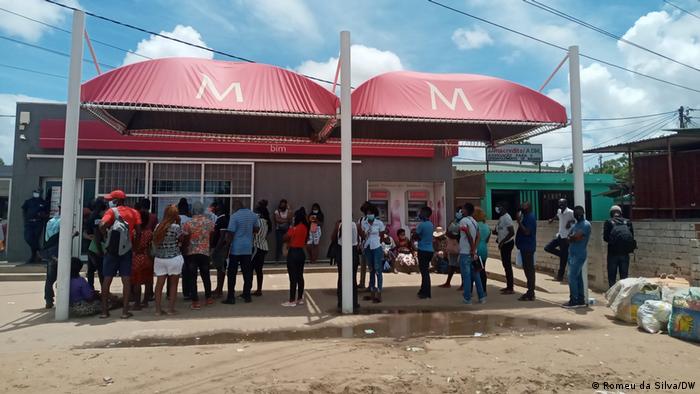


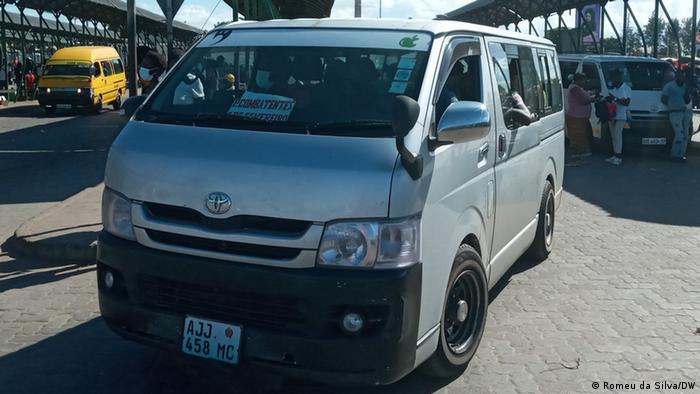
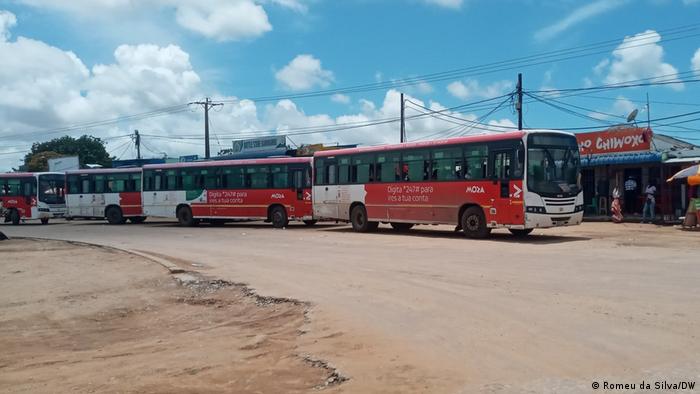
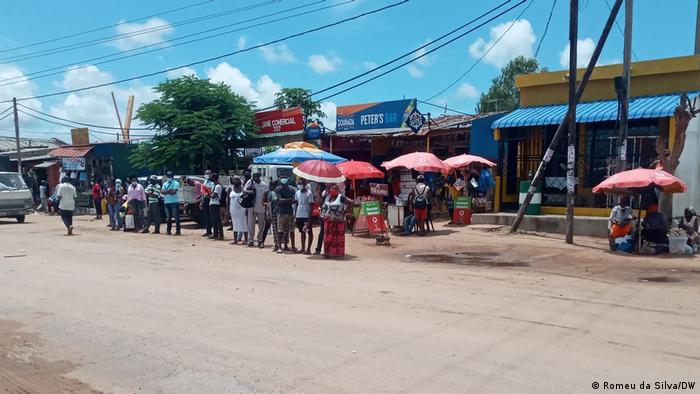
















Leave a Reply
Be the First to Comment!
You must be logged in to post a comment.
You must be logged in to post a comment.